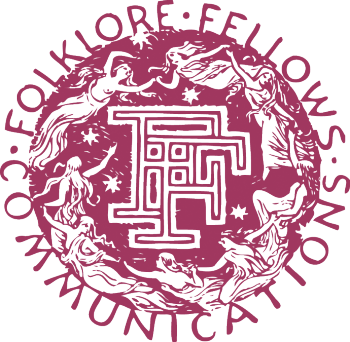CFP: 11th Folklore Fellows’ Summer School “Interdisciplinarity and Involvement: Enduring and Emerging Sites of the Vernacular”

Folklorists develop specialized skills and repertoires of methods and theories for investigating the circulation and operation of forms of vernacular culture among groups and networks, including narrative, local knowledge, verbal art, embodied practices, as well as heritage and memory work, while critically examining the ideological underpinnings shaping these processes. This specialization forms a backbone of disciplinary identity. However, this identity is also fundamentally interdisciplinary, requiring individual folklorists to develop specialist knowledge in the area studies and disciplines connected to their particular focus, interests and research materials. Interests in vernacular knowledge and perspectives are booming, making folklorists’ skills a valuable commodity. Interdisciplinary research and collaboration are in increasing demand both within academia and in engagements with the public sector. The movement of methods and theories across different disciplines has become increasingly common, yet adapting methods and ideas is not the same as gaining specialist perspectives. The 2026 Folklore Fellows’ Summer School (FFSS) focuses on what folklorists can bring to interdisciplinary collaborations and the roles folklorists can fill in today’s rapidly changing societies. Rather than focusing on the role of interdisciplinarity in one’s own research, this FFSS will help young folklorists develop perspectives on the value and potential of folklorists to contribute to research, debate and societal engagement beyond the field.
This week-long event gathers young folklorists with a team of instructors with extensive experience in different domains of interdisciplinary and cross-sectoral work. The FFSS brings into focus the value and potential of folklore research, highlighting that interdisciplinarity is, by definition, dependent on specialist disciplinary knowledge and skill sets. Such specialization provides foundations for a researcher’s identity as they engage with and extend their specialization into other fields. As multidisciplinary collaborations become increasingly commonplace in the humanities, this FFSS will introduce young scholars to the potentials and pitfalls of such collaborations, while also equipping them to present their potential, as folklorists, for collaborations when applying for grants and positions in academic, public or private sectors.
Keynote speakers:
- Guy Beiner
- Diane Goldstein
- Tim Frandy
- Frog
- Tina Paphitis
- Ülo Valk
The 2026 FFSS will begin in Helsinki on August 17th and move that evening to a facility in Tvärminne, Finland, where room and board are provided for the duration of the event, returning to Helsinki on the evening of August 21st.
The size of the event is limited. For participation, the organizers invite proposals for working papers on themes of interdisciplinarity and involvement in folklore research, from its potential, prospects, and pitfalls to its implementations in practice.
Papers may have an empirical, methodological, or theoretical emphasis. To propose a paper, kindly submit your name, affiliation, contact information, and a short motivational statement about how participation is relevant for you and a biographical note, along with a title and abstract at: https://elomake.helsinki.fi/lomakkeet/135786/lomake.html .
A copy of your paper will be required in advance for circulation within the group.
The deadline for submissions is October 31, 2025. More detailed instructions will be provided with acceptance notifications. Any questions may be addressed to: ffsummerschool2026@gmail.com.
We sometimes make mistakes, and we are happy to correct any errors that you may come across on our site. If you find an error, please let us know using the “submit a correction” link.